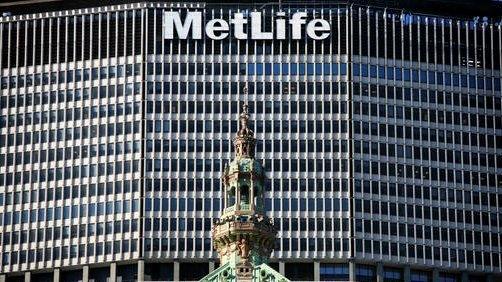How MetLife Trumped the U.S. Government’s ‘Too Big to Fail’ Case
MetLife Inc. (NYSE:MET) scored a major victory on Wednesday for American tax payers and perhaps the U.S. financial system as a federal judge ruled the insurance giant is not “too big to fail” and should not be subjected to the stricter capital requirements implemented after the 2008 mortgage meltdown.
The ruling, handed down by District of Columbia federal judge Rosemary Collyer, rejected the Financial Stability Oversight Council’s (FSOC) rationale for classifying MetLife as a systemically important financial institution (SIFI).
Eugene Scalia, son of the late U.S. Supreme Court Justice Antonin Scalia, is the architect who challenged the government regulation. Mr. Scalia, a Gibson Dunn Partner and attorney for MetLife, explained to FOX Business Network’s Maria Bartiromo the argument he crafted declaring MetLife not a systemic threat.
“We made several different arguments, but the heart of the case was that under any regulatory framework, and no matter how powerful or important an agency, there are obligations on part of the agency to give careful attention to the evidence that is before it, to give a fair hearing to the arguments that are made,” Scalia said on the FOX Business Network’s Mornings with Maria.
Mr. Scalia went on to say the thrust of the government’s case relied too much on its own speculation and the government did not provide MetLife fair access to the information.
“This was not a challenge to the Dodd-Frank Act,” Scalia said. “I viewed it more as a vindication of the procedures and the substance rules that Congress has put in there that we argued that the Financial Stability Oversight Council or this agency called FSOC hadn’t followed.”
The Dodd-Frank Act, signed into law in July of 2010, by President Barack Obama, provides FSOC the authority to identify and monitor excessive risks to the U.S. financial system, eliminating expectations by any financial firm of being too-big-to-fail.
Scalia warned about the consequences of government regulation in big business.
“I had no idea until getting involved in this case for MetLife how extremely intrusive regulation by the federal reserve board is in particular when you are being regulated as a big bank,” Scalia said. “It’s really another world in terms of the burdens.”
The government argued in court that designating MetLife as too big to fail had no effect on the insurance company which Scalia said it’s simply not true.
The Treasury Department released a statement on Wednesday saying it strongly disagrees with the court's decision and has 60 days to consider an appeal.




















